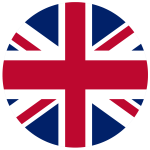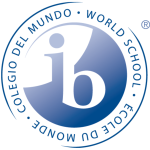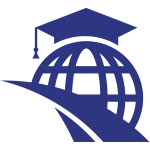
An Overview
International schools in Thailand showcase a remarkable diversity of curricula that reflect global educational standards while catering to various pedagogical philosophies.
This section aims to provide an insightful overview of the primary education systems embraced by international schools nationwide.
Curricula Offered at International Schools in Thailand
The American Curriculum
This curriculum is grounded in evolving learning standards and benchmarks, often integrating the Common Core State Standards (CCSS). It adopts a holistic approach to education, with learning beginning as early as age five in preschools or kindergartens, focusing on foundational skills and social development. Throughout the Elementary, Middle, and High School (ages 6-18), the curriculum strives to balance rigorous academics with enriching co-curricular activities such as sports, arts, and clubs. Students are prepared for external examinations, including Advanced Placements (AP) and SATs, which are particularly beneficial for university applications in the United States and around the globe.
The British Curriculum
The British education system offers a structured and progressive pathway for students aged 5 to 16, with accommodations for younger and older learners. Students are organized into Year Groups that align with Key Stages, each featuring clearly defined learning objectives and assessment methods. At age 14 (Key Stage 4), students typically engage in the International General Certificate of Secondary Education (IGCSE) over two years, covering a comprehensive range of subjects such as core English, Mathematics, and Science. For university admissions, students may proceed into Key Stage 5 (Sixth Form) to undertake two years of Advanced Level (A-Level) courses. Both IGCSEs and A-Levels are recognized globally for university admissions.
The International Baccalaureate (IB) Programme
Renowned for its holistic, inquiry-based, and globally conscious approach, the IB curriculum is offered in numerous schools worldwide. Schools providing IB programmes undergo a rigorous authorization and evaluation process by the IB organization to maintain consistent quality. The IB emphasizes critical thinking, intercultural understanding, cultivating knowledge, skills, positive attitudes, and responsible action. The three IB programmes can be pursued individually or as a cohesive continuum:
- Primary Years Programme (PYP): This program for students aged 3-12 focuses on the development of the whole child as an inquirer, both in and out of the classroom. It is a transdisciplinary, student-centered approach to education.
- Middle Years Programme (MYP): A challenging framework for students aged 11-16, the MYP encourages students to make practical connections between their studies and the real world, fostering critical and creative thinking.
- Diploma Programme (DP): This academically challenging and balanced programme for students aged 16-19 prepares them for success at university and in life. It addresses the intellectual, social, emotional, and physical well-being of students.
- Career-related Programme (CP): A unique programme for students in their final school years, the CP equips them with future-ready skills and prepares them to follow their career pathways. It combines academic subjects with their own professional interests.
Additional Educational Pathways
Beyond these primary systems, international schools in Thailand also offer a variety
of alternative pathways:
- National Curricula: Many schools align with the educational frameworks of their home countries, including Australian, Canadian, French, German, Japanese, Indian, and Singaporean systems, often instructing in the native language.
- International Primary Curriculum (IPC): Some schools at the primary level adopt IPC, a comprehensive, inquiry-based curriculum designed for global learning, frequently drawing from British educational models.
- Blended Curricula: Certain institutions creatively integrate elements from multiple curricula (e.g., an American-based curriculum enhanced with IB or AP courses) to provide a comprehensive educational experience.
- Specialized Pedagogical Approaches: There are schools that prioritize particular educational philosophies, such as Montessori (promoting self- directed learning) or Reggio Emilia (focusing on project-based, collaborative learning), along with those that emphasize STEM (Science, Technology, Engineering, Mathematics).
- Faith-Based Schools: Numbers of international schools incorporate religious teachings and values alongside a high-quality academic curriculum.
The extensive array of curricula and educational approaches highlights Thailand's rich and diverse landscape of international education.



